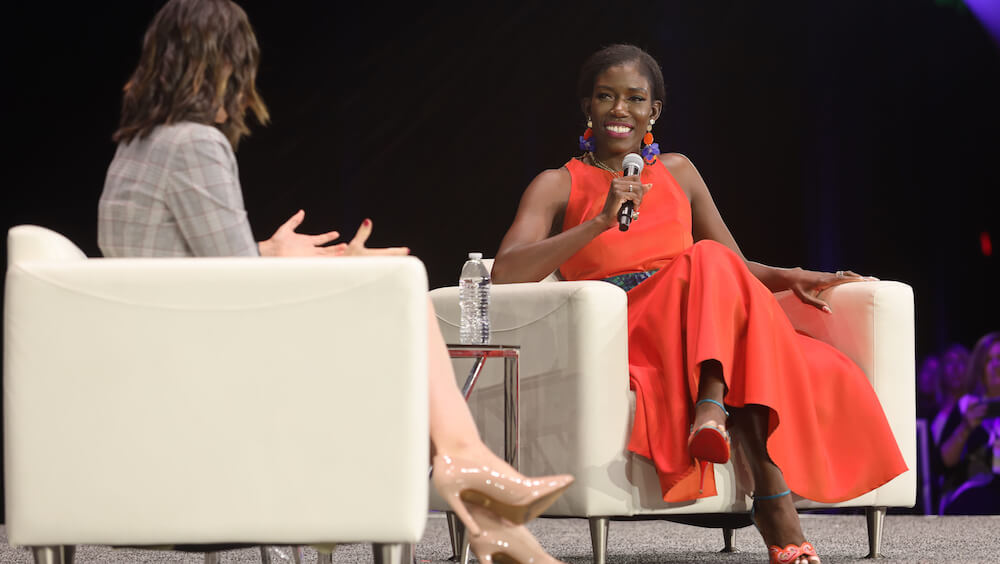
Convening Leaders 2020 Main Stage speaker Bozoma “Boz” Saint John discussed the role of authenticity in business. (Photo Courtesy Jacob Slaton Photography)
When Tuesday morning’s Main Stage speaker Bozoma “Boz” Saint John, the chief marketing officer for one of the country’s largest talent and media companies, Endeavor, was asked about the big trends that she is watching now, she didn’t hesitate.
“This one’s going to be super easy: transparency,” Saint John told Convening Leaders moderator Holly Ransom, to a burst of applause. “That’s it. That’s a big trend — and it is easier said than done. That means that gone are the days when our audience or our consumers don’t want to know or understand what is happening inside our companies.” They want to know the leadership, they want to know your values, they want to know why you do the things you do, she said. “Audiences are not interested in opaque glass. They want to see through it.”
Saint John herself was frank and forthcoming about the challenges and triumphs in her career and personal life as she sat with Ransom for a free-wheeling, 45-minute-long conversation that touched on topics ranging from the role of authenticity and emotion in business to the benefits of cultivating diversity and concluded with a standing ovation.
Connecting with the emotional human side of brands, not just their products, has been a through line for Saint John at a series of high-profile senior executive roles at companies including Apple and Uber. When she was offered a job as head of global consumer marketing for Apple Music and iTunes, for example, she saw it as a chance “to market the brand in a way that felt more human,” and make an impact, she said. We get focused on algorithms and data, Saint John said. “But data is only as good as the story that you tell out of it.”
And while data is undeniably important, she said, “what if we really sat back and just thought about what motivates you or what motivates me, what are the things that make me excited or fearful or joyful? We would have a much greater chance of then motivating our audiences to do whatever it is that we wanted them to do,” she said. “We talk about our audiences like we don’t know them — as if they’re not you and me and our friends. We are them and they are we. It sounds so simple, but it’s true.”
Her identity as a black woman in Silicon Valley helped her make the decision to take on an executive role at Uber, where she was chief brand officer, at a time when the ride-sharing company was in the headlines for having a discriminatory and toxic environment for women and people of color — in other words, people like her.
As a C-suite executive, she could make a statement simply by being there, she said. Her presence also said something about stepping out behind a veneer of conformity. “I do tend to walk around like this most of the time,” said Saint John, who was wearing a vivid orange dress with brilliantly colored dangling earrings and shoes. “Sometimes I wear leather and sometimes it’s sequins. I just want to dare anybody to do anything to me when I’m wearing all of that.” Showing up as anything other than herself at work ultimately proved to be too exhausting, said Saint John, who is known as “badassboz” on social media. “I tried for a little bit,” she said. “It was just too hard.”
“Sometimes we avoid sharing things or hide parts of ourselves, because we’re afraid that people won’t connect to it or will judge us differently because of some experience or some emotion,” Saint John said. “But I have found in my experience that most of the time that’s actually what connects us to other people.”

